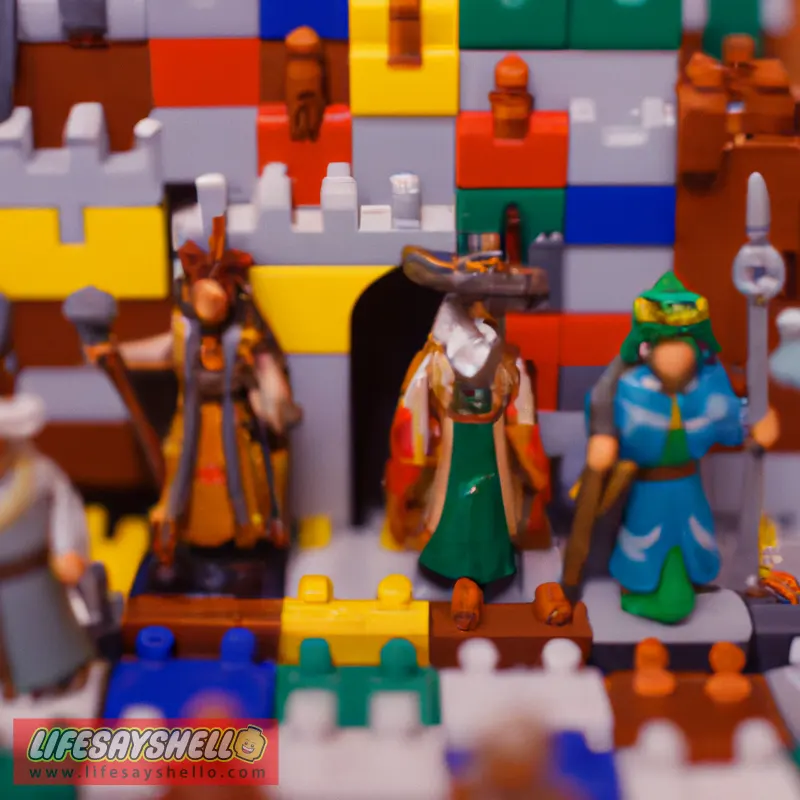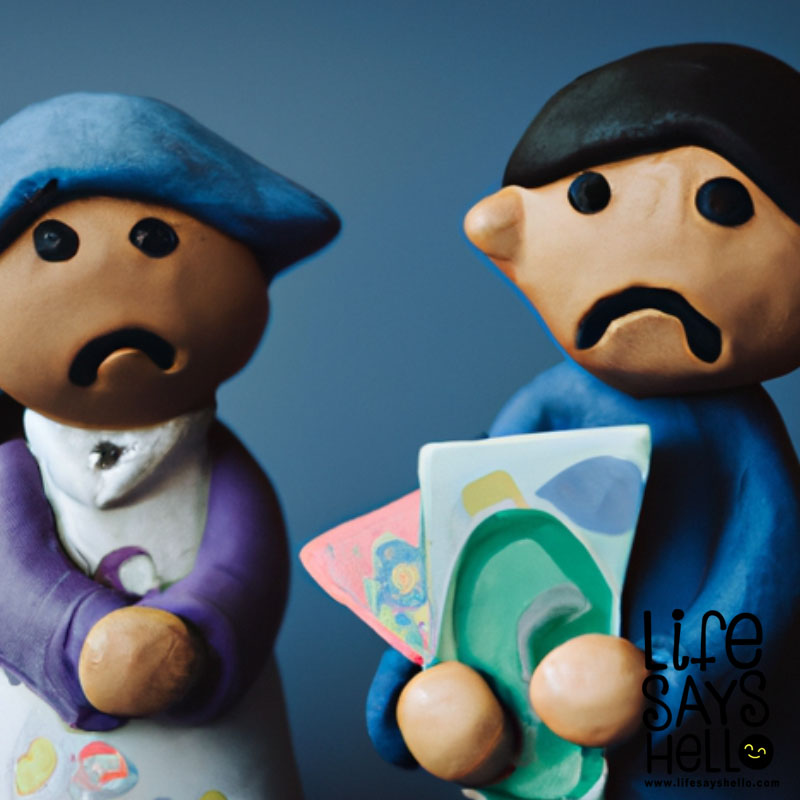The Importance of Understanding Our Heritage

Our heritage provides a critical link to our past that shapes who we are today. While we often focus on the present and future, exploring our heritage can provide many benefits. Understanding our family history, cultural traditions, and ancestry is valuable for developing our identity, connecting with the past, preserving culture, and learning important lessons about ourselves and others.
Our Heritage Shapes Our Identity
Our personal heritage heavily influences our identity, even if we don't realize it. The family we grow up in, the traditions we take part in, and our ancestry all contribute to our self-image and worldview. Even if we don't know the details of our family tree, our inherited traits, stories, shared values, and customs become ingrained in us from an early age.
Exploring your heritage provides clues about your origins and background. It can reveal how your family and society have evolved over time. Learning about your heritage gives insight into accomplishments of past generations and hardships they overcame. It exposes you to their beliefs, their struggles, and their way of life. These discoveries help you understand why you are the way you are. The handed-down behaviors, perspectives, and qualities of your ancestors have shaped you whether you know it or not.
Beyond family, our cultural heritage also affects our identity. The nation, ethnicity, or religion we associate with often forms a strong part of our self-concept. The values, shared memories, rituals, and achievements of our cultural heritage help define us. Even if we don't fully understand our complex family trees, cultural heritage gives us a sense of belonging.
In a changing world, heritage provides stable roots that ground our identity. It gives us a foundation to build upon as we find our own way. The clues it provides about our origins, background, and influences help us gain perspective on who we are.
Connecting to the Past Through Heritage
Heritage gives us insight that enables us to communicate deeply about a shared past. Even if you don't know your whole ancestry, you likely identify with a cultural heritage. This provides a common language and understanding. It gives you something in common with both close family and distant relatives.
This shared heritage enables you to communicate on a deeper level. You have a built-in connection thanks to a similar family story and cultural background. Rather than explaining yourself fully, your heritage gives you a shortcut. The ability to reference common experiences, family sayings, or cultural touchstones makes communication easier.
Beyond the present, heritage also connects you to past generations. Knowing your ancestors and their experiences provides a direct link to history. Primary sources like old photos, letters, and objects make their lives more real. You gain a deeper appreciation for their daily struggles, accomplishments, and lasting impact. Their principles, talents, and resilience become part of your legacy.
Heritage gives us access to ancestors we could never meet in person. It lets us hear their voices and see through their eyes. Learning about the lives of those who came before you provides perspective. You can see how your family and cultural heritage have evolved over decades or centuries. This gives you an invaluable viewpoint on the present.
The traditions, food, music, clothing, and values of cultural heritage also connect you to the past. Shared heritage bonds you to others with a common background. It allows you to celebrate and remember together. This provides a profound link between past, present, and future.
Preserving Cultural Heritage
Beyond personal identity, cultural heritage encompasses the customs, artifacts, architecture, stories, and knowledge of groups over time. It provides a record of accomplishments and injustices, wisdom and ignorance, skill and artistry. Cultural heritage is a legacy worth preserving for what it teaches us about humanity.
However, heritage can also be used to include or exclude certain groups over others. Those in power have at times suppressed minority heritage while elevating their own. Significant cultural knowledge has been lost throughout history due to war, oppression, and indifference.
Preserving heritage today is crucial for combating prejudice and learning from the past. Protecting important cultural sites, records, and stories ensures they will endure and remain accessible. Future generations gain through preservation efforts.
Maintaining heritage takes many forms. Supporting museums, libraries, and similar institutions helps safeguard artifacts and documents. Cultural events and celebrations keep folkways alive. Recording oral histories prevents stories and languages from disappearing. Genealogy research connects us to ancestors and helps us learn their tales.
Preserving intangible culture like music, dance, and craft skills is equally important. These practices get passed down through participation. Without new generations to carry on traditions, they will be lost.
Cultural heritage directly engages our curiosity about the past. It teaches diverse lessons about people, places, and events that shaped society. Preserving this complex inheritance ensures we can learn from both the successes and mistakes of the past. It provides perspective on how people lived, what they valued, and how they met challenges. Even difficult heritage reveals insights into injustice that can spur social progress.
At its best, preserved heritage uplifts marginalized voices, celebrates achievement, and promotes inclusivity. It facilitates healing through acknowledgement of wrongs done by societies or institutions. Recording diverse experiences allows more people to see themselves reflected in history.
Cultural heritage is always evolving, not static. Each generation gains new perspective on the past through its own lens. The heritage preserved today reflects current values as much as historic ones. Future generations will reinterpret it further.
What we choose to preserve also represents what we think is important now. But the subjectivity of these choices makes continued preservation efforts essential. Wide participation allows more voices to shape what heritage gets saved for the future.
Prioritizing preservation protects artifacts, sites, traditions, and knowledge for posterity. More inclusive heritage creates opportunities for learning, connection, and reconciliation. Our preserved inheritance should reflect diverse contributions over time, not just the dominant culture.
Lessons Learned from Exploring Heritage
Beyond preserving tangible culture, exploring heritage also imparts powerful individual lessons. Investigating your family’s past provides perspective on the present. Seeing how your ancestors lived and what they faced puts your own trials in context. The principles they fought for or against become clearer.
Learning the story of previous generations exposes their choices and values. You gain insight into opportunities they had, challenges they faced, and impact they made. Knowing your forebears’ struggles helps you appreciate the advantages you have thanks to their sacrifices. It can reveal how resilience, hard work, and optimism helped them overcome obstacles.
Studying cultural heritage delivers broader lessons about societies over time. It highlights accomplishments, failures, and injustices. You gain perspective on societal challenges like war, inequality, or poverty. This background helps you understand current issues rooted in history.
Exploring others’ heritage builds empathy and appreciation for different experiences. It exposes you to diverse worldviews shaped by alternate family stories and cultural backgrounds. Understanding unique traditions, values, and customs expands your perspective.
We can always learn from heritage, even when it reveals uncomfortable truths. Examining the past helps us reconcile present divisions when heritage has been used to exclude. Acknowledging oppressive aspects of history promotes healing.
No heritage is definitively “good” or “bad”—it simply provides context for who we are. We inherit both the beautiful and painful parts of the past. Exploring heritage gives us power to thoughtfully build on its lessons, not repeat its mistakes.
Conclusion
Heritage provides an inheritance that is too valuable to take for granted. It shapes our identity and worldview in profound ways. Heritage roots us in a narrative bigger than ourselves. It connects us to those who came before while creating responsibility to those who come after.
The family stories, cultural values, and artifacts of the past teach us powerful lessons. Preserving this diverse heritage ensures it endures for future generations. Our shared inheritance provides wisdom, perspective, and warnings that guide us forward. Though invisible, heritage remains an influential force even in our modern, interconnected world.




Comments